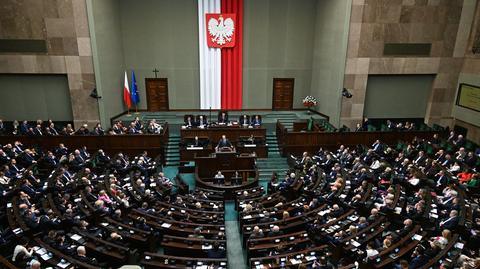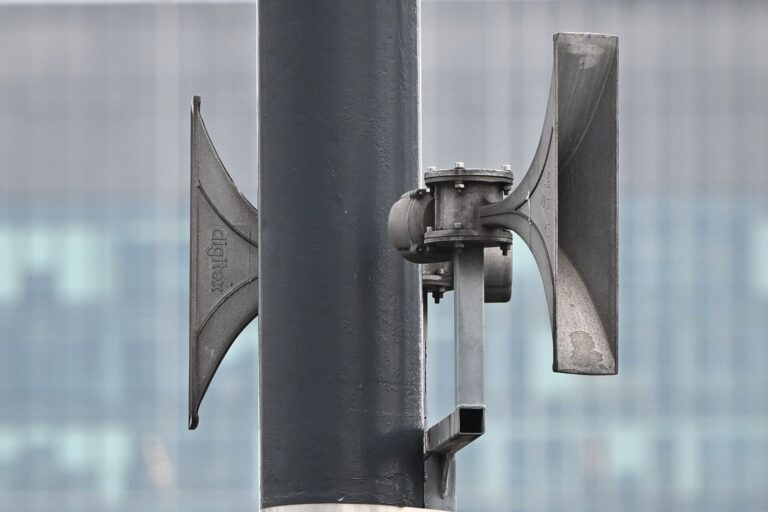Biznes Fakty
New property declarations. Ministry of Digital Affairs explains

The time for unclear, poorly completed property declarations is coming to an end. The Ministry of Digital Affairs is working on a system to generate and store electronic versions of these documents.
We have previously discussed the issue concerning the necessity for individuals required to submit property declarations to do so, particularly focusing on MPs and senators. Prime Minister Beata Szydło (PiS) was noted for her approach to filling out her property declarations.
 Excerpt from Beata Szydło's financial declaration for 2022 Sejm.gov.pl
Excerpt from Beata Szydło's financial declaration for 2022 Sejm.gov.plOver the years, coinciding with Szydło's entry into her role as an MEP, the format of asset declarations has evolved, leading to difficulties in readability (such as for 2022). In some instances, the answers to specific questions can only be speculated upon.
 Excerpt from Beata Szydło's statement for 2020 Sejm.gov.pl
Excerpt from Beata Szydło's statement for 2020 Sejm.gov.plRead more in: What was Beata Szydło’s income? Her financial statement is puzzling
Changes in asset declarations
It is important to note that it is not solely members of parliament and senators who are required to submit asset declarations. Councillors, mayors, presidents, and judges are also under this obligation.
In total, roughly 100,000 Poles must fulfill this requirement annually. This figure is significant, and since many of these individuals are in the public eye, the Central Anticorruption Bureau monitors them along with the documents they submit. The issue arises when these documents are unreadable.
Consequently, the CBA has decided to take action. In January, it announced plans to draft a law regarding asset declarations, aimed at addressing several issues, including those related to the nature and method of completing these documents.
Rather than the current 17 asset declaration forms, there will be one unified electronic form. Additionally, „uniform, realistic and adequate criminal and financial penalties” will be introduced.
The Ministry of Digital Affairs, in collaboration with the Ministry of Internal Affairs and Administration, is currently working on the CBA’s initiative. We reached out to inquire about the status of the project.
„Gathering needs and requirements”
Jowita Bieda from the MC communications office responded to our inquiries, stating that „the project is presently in the phase of gathering needs and requirements from all individuals and institutions involved.”
– The initiative to establish the Central Register of Property Declarations aims to create a new state register. This register will allow: authorized individuals access to public property declarations, data access for institutions responsible for their analysis and oversight, as well as the ability for obligated individuals to submit and amend declarations – noted the representative from the Ministry of Digital Affairs.
Moreover, it is indicated that the objective of the register’s establishment is to facilitate the complete digitization of: • asset declaration forms, replacing the seventeen previously used templates, • the notification process regarding the need to submit a declaration, • the submission process for property declarations by obligated individuals, • the analysis and oversight of the submitted asset declarations, • centralizing and standardizing the data source for services, and • the migration of electronic declarations along with the digitization of paper declarations.
The forthcoming register is expected to assist both the institutions that collect, analyze, and oversee asset declarations and the individuals required to submit them. However, the specific entities involved remain unknown.
– The draft law being prepared by the Central Anticorruption Bureau will specify which institutions will have access to the register and the extent of that access – Bieda emphasized.
Pilot in 2026
The Ministry of Digital Affairs has informed us that an analysis and the development of the system’s technical concept are scheduled for this year.
– A pilot launch for a select group of users is anticipated for 2026 to gather feedback and requirements that will be integrated into the final version of the system – a ministry representative stated.
The introduction of the register does not imply that those submitting declarations will face new obligations. As mentioned in their response to our inquiry, „the solutions implemented in the system will consider the requirements set forth by the provisions of the Act,” and „the system itself does not create new obligations but serves to support their implementation as mandated by the regulations.”
The Ministry of Interior and Administration is also addressing some aspects of the new regulations, and we
Źródło



